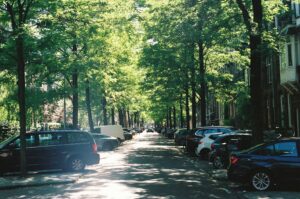Due to an increase in unoccupied buildings and with restrictions on people’s movements due to COVID-19, it is likely that communities across the UK will see an increased threat from vandalism.
There have already been several news reports of increased vandalism across the UK during the COVID-19 lockdown, for example:
MP hits out after coronavirus ‘racist graffiti’ daubed in Harborne
‘Devastating’ vandals cause thousands of pounds of damage to children’s playground in Farnborough
Bristol head teacher pleads for Stoke Lodge vandalism to stop
Residents angry after vandals scratch cars in Sutton during coronavirus lockdown
It is therefore important that councils and local authorities take action as soon as possible to try to prevent and deter would-be vandals.
What is Vandalism?
Definitions of vandalism can vary. In general, vandalism is defined as “wilful or malicious damage to property, such as equipment or buildings”. Vandalism is often associated with other signs of social disorder, such as disturbing the peace and trespassing.
Vandalism includes graffiti, light smashing, trash dumping, removing/bending signage, breaking windows, or other defacing of property.
Addressing the problem
Before implementing a strategy to prevent vandalism, it is important to define the specific nature of the vandalism problem affecting your area. Answers to these questions will help you understand the problem:
- How many vandalism incidents have occurred this month?
- What type of vandalism is most common?
- Are vandals targeting specific types of property?
- Do you have information on the individuals doing the vandalising?
- What times of day and days of week does vandalism occur?
- Are other local areas experiencing vandalism or graffiti?
- Do you have anything in common with other areas being targeted?
How to reduce Vandalism in your community
Here are some tips which will reduce the likelihood of your property being the target of vandalism. Please bear in mind that consideration should be given to the balance between available resources and the perceivable risk. For example, you would not put security lights on a building if there is no history of vandalism in the area.
- Install security lights – Light is the vandal’s biggest enemy. They do not want to be seen. Keeping areas well-lit makes it difficult to commit their acts of vandalism without being seen. Vandals like to operate under cover of darkness.
- Use unbreakable glass and fixtures – The first thing a vandal does is break lights and accessories. Doing so returns the area to the dark state required for them to commit their criminal acts without being discovered. Unbreakable glass and fixtures prevent them from accomplishing this task.
- Install security fencing around your property – Where possible install fences around the perimeter of your location to discourage intruders. Be sure to post ‘no trespassing’ signage on them as well.
- Strategically plant shrubs and bushes to increase security – Plant shrubs and bushes to make it more difficult for criminals to reach their targets. Be sure to use plants with thorns and sharp jagged leaves and branches.
- Clean up vandalism as soon as possible – Vandals want to commit their act and have others see it. This is particularly the case with graffiti. Quickly removing the evidence of their actions eliminates their ability to take credit and embolden their reputation with their peers. Clean it up as soon as you see it.
- If you see anyone committing vandalism, report it to the Police – Many people make the mistake of thinking that acts of vandalism are “too small” to report to the police. This is false. No matter how large or small, report it all.
Michelle South, Schemes Director, said:
“At this unprecedented time we are here for local councils to provide support, guidance and advice. As lockdown continues we will come up against new challenges and unfortunately vandalism and malicious damage may be one of them due to boredom and frustration of some residents. Drop us a line if you want to discuss or highlight any insurance or risk management issues you may be experiencing, we’re here to help.”
Specialist Insurance for Local Councils
We are passionate about delivering tailored insurance solutions for Local Councils.





